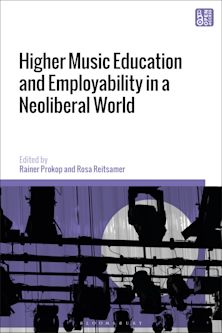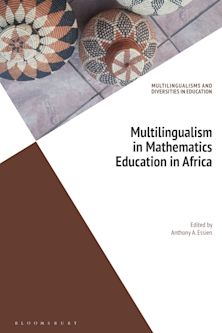Culturally Affirming Literacy Practices for Urban Elementary Students
Culturally Affirming Literacy Practices for Urban Elementary Students
Description
The nation’s demographic of public schools are more ethnically, racially, and linguistically diverse than ever before (Strauss, 2014). However, there are still educational policies and practices that call to question whether traditionally marginalized students receive an equitable education. This is demonstrated in national achievement trends, which highlight disproportionality ratings among minoritized student groups. Also when examining school discipline policies, expulsion ratings, special education services, and school choice movements, all seem to handicap educational opportunity for low-income Black and Brown students. As American schools become more and more diverse, it is imperative that the literacy practices used to teach young students of color reflect the nation’s changing demographic.
This book provides practical insights guided by conceptual and contextual knowledge in understanding how to teach urban African American and Hispanic/Latino(a) students by discussing issues associated with critical pedagogies, literacy, and culturally appropriate instructional strategies that have demonstrated success for traditionally marginalized student populations. This book examines culturally affirming literacy practices from three main components: (1) scholarship, (2) the field of practice, and (3) teacher education models. Each of these three are significant in understanding how to teach minoritized populations. As such, chapters have been organized into three main sections that address scholarship and research, trends in the field, and implications for teacher education models – all in order to advance the literacy achievement of African American and Hispanic/Latino(a) students.
Table of Contents
Foreword
Nancy Gallavan
Chapter 1: Introduction: The Continued Era of Language Discrimination for Minoritized Students: Implications for Culturally Affirming Literacy Practices in Urban Elementary Schools
Lakia Scott, Baylor University
Chapter 2: A Framework for Critical Social Justice Literacy in Urban Elementary Schools
Dana Stachowiak, University of Louisiana at Lafayette
Chapter 3: Reauthorizing Excellence in Literacy Teaching for African American Learners
Melanie Acosta, University of Alabama
Chapter 4: Harambee!: Successful, Culturally-Centered Literacy Instruction for Struggling Readers through the Children Defense Fund’s Freedom School Model
Marcia Watson, Towson University
Chapter 5: Beyond Basic Instruction: Effective Civic Literacy Instruction in Urban School Settings
Barbara Purdum-Cassidy, Baylor University, and Karon LeCompte, Baylor University
Chapter 6: Affirming the Identities of English Learners through Purposeful, Project-Based Literacy Instruction
Catherine Reischl, University of Michigan, and Debi Khasnabis, University of Michigan
Chapter 7: Critical Pedagogies for Increasing English Language Learners’ Reading and Writing Achievement
Cherese Childers-McKee, University of North Carolina at Greensboro, Libra Boyd, University of North Carolina at Greensboro, and Corliss Brown Thompson, Northeastern University
Chapter 8: How Does your Garden Grow? Using Nature to Bridge the Language Gap with Young English Language Learners
Elena King, Greensboro College, and Michelle Plaisance, Greensboro College
Chapter 9: Culturally Relevant Texts and Urban English Language Learners
Jessica Meehan, Tarleton State University
Chapter 10: Moving Beyond Apartheid Schooling and “Adequate Education”: Empowering the Minoritized through Critical Media Literacy
Elena Venegas, Baylor University
Chapter 11: “Started from the Bottom Now We Here”: Helping Educators to Empower Urban Students about their Futures by Liberating them from Cultural Past
Lakia M. Scott, Baylor University and Marcia Watson, Towson University
Chapter12: Teaching with the Technology: Apps, Software, and Social Media Explored for the Urban Literacy Classroom
Jason Trumble, University of Central Arkansas, and Michael Mills, University of Central Arkansas
Chapter 13: Preparing Pre-Service and In-Service Educators to Use Instructional Technology as a Differentiation Tool in English Language Arts and Reading
Leanne Howell, Baylor University, and Brent Merritt, Midway Independent School District
Chapter 14: Professional Development and Classroom Resources for the Elementary Literacy Educator
Sherry McElhannon, Literacy Fusions,andJessica Rogers, Literacy Fusions
About the Editors
About the Contributors
Index
Product details
| Published | 17 Aug 2016 |
|---|---|
| Format | Ebook (Epub & Mobi) |
| Edition | 1st |
| Extent | 210 |
| ISBN | 9781475826449 |
| Imprint | Rowman & Littlefield Publishers |
| Illustrations | 4 b/w illustrations; 2 b/w photos; 3 tables |
| Publisher | Bloomsbury Publishing |



































